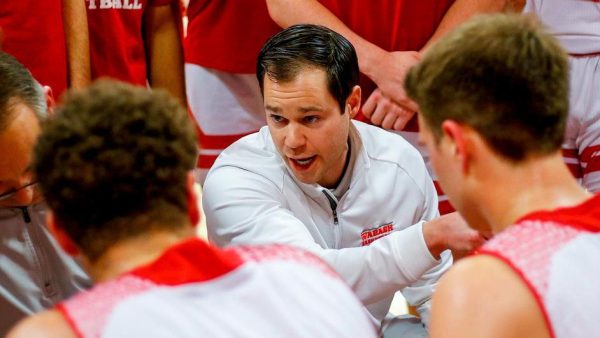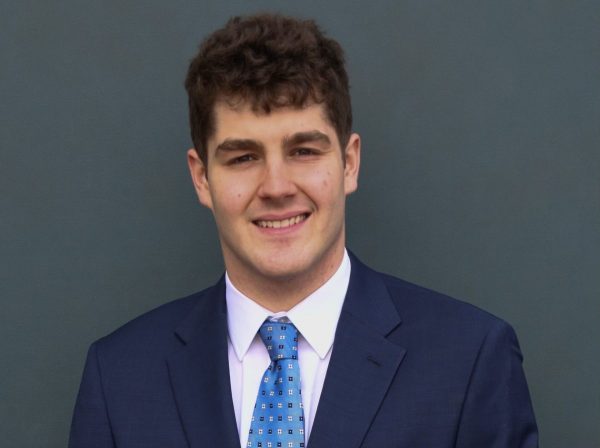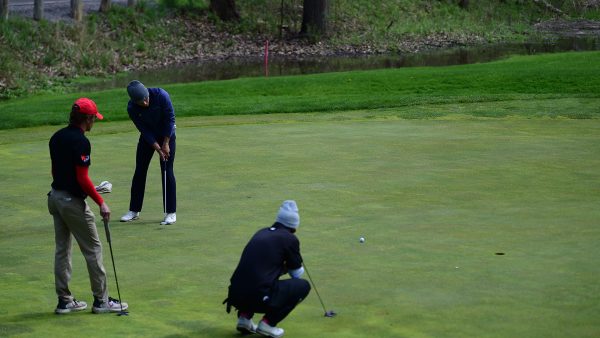NHL struggles to keep season afloat amidst the pandemic
The COVID-19 pandemic has forced sports leagues to shorten their seasons, play in a bubble and try to bring in revenue with limited capacity for fans. So far nearly every major sport has completed a season during the pandemic, but there are legitimate concerns that the NHL might not be able to reach this goal for the 2020-21 season.
The NHL did complete the 2019-2020 season during the pandemic. After suspending play in March, however, the NHL did not resume play until Aug. 1. Instead of finishing the regular season, the NHL started the playoffs immediately, and the Tampa Bay Lightnings won the Stanley Cup in October.
Usually, the NHL begins in mid-to-late September and holds an 82-game regular season. Due to the pandemic, the 2020-21 season began on Jan. 13, and only 56 games will be played. Similar to other major sports leagues, the NHL has a limited number of fans in each game and lost millions of dollars in revenue.
Andi Reiser, ’23, elaborated on the financial impact on the NHL of playing through the pandemic.
“With the season being pushed back several months, taking out a $1 billion loan, and on top of that having less fans at the games, the NHL is losing so much money,” Reiser said.
The loan will be evenly distributed among the 31 NHL teams to make up for lost revenue. Additionally, many of the teams continue to lose money because their players contracted COVID-19, causing game cancellations. According to USA Today, 17 out of the 24 US teams in the NHL have postponed at least one of their games.
Avery Greenaway, ’23, talked about her frustration with the NHL’s COVID-19 situation. Earlier this month, Avery’s favorite team, the Pittsburgh Penguins, had their games cancelled against the New Jersey Devils because 10 players contracted the virus in the Devils’ organization.
“Each game is so important because they are only playing a certain number of games and having random cancellations is rather unfortunate,” Greenaway said.
Some teams are experiencing worse COVID-19 outbreaks than others. Chase Chodkowski, ’23, is a fan of the Buffalo Sabres, who experienced a 15-game stretch without a single game being played during the season. Similar to many other NHL fans, Chodkowski is puzzled as to why the NHL has not handled the virus as well.
“There have been bad (COVID-19) outbreaks similar to any other sports league,” Chodkowski said. “I don’t know if it’s because of a more in-depth schedule than the football season, but it’s definitely hitting the NHL the worst.”
Each team in the NHL is used to playing around three games a week, but because some teams have missed so many games, a team might have to play five games a week. Thus, this would be a huge disadvantage for teams that have to make up games.
Therefore, the NHL is considering that instead of each team playing all 56 games, the teams with the highest winning percentage would make the playoffs, rather than the win-loss record.
Noah Parker, ’21, believes that the NHL should stick with the win-loss record, rather than winning percentage.
“All teams are expected to handle COVID-19 in the proper way for a 56-game season,” Parker said. “If these teams have not been able to handle COVID-19, then they should make up these games.”
As the season has progressed, the NHL has changed their protocols. According to CBS, on Feb. 4, the NHL implemented new policies such as removing glass behind team benches to allow more airflow in a tightly packed area, buying air cleaners to lower the transmission of airborne virus particles, having only virtual meetings and prohibiting any players and coaches to arrive more than an hour and 45 minutes before game time.
Another unique strategy the NHL is considering to slow the spread of the virus is using players who have already contracted the virus as a buffer. According to ESPN, players who have not contracted COVID-19 will be seated next to players on the bench who have previously contracted and recovered from the virus within the past 90 days. Greenaway recognizes the importance of the placement of bench players and believes this new policy will negatively affect team strategy.
“That’s kind of absurd,” Greenaway said. “Just from a practicality standpoint, they have specific placements for the bench for their defensive and offensive lines, so using buffers would not make a lot of sense.”

Adam Cohen is a third-year student from New York City. This is his second year on the Campus staff and he is a Communication major with a double minor...





